14 Important Bugging In Essentials & Tips
Today, I’m sharing 14 important bugging in essentials and tips. You’ve heard of bugging out, but have you heard of bugging in? Many people have heard of the term “bugging out,” which refers to leaving a dangerous or unstable situation in order to find safety. But what about bugging in? Bugging in is the opposite – it means staying put and fortifying your home against attack or disaster. Here are some bugging-in essentials and tips for doing so.

What is bugging in?
Bugging in is the act of preparing to stay put and ride out an emergency or Disaster Scenario at your home. This is in contrast to bugging out, which is when you evacuate from your current location to go someplace else that is deemed safer.
Why bug in?
There are several reasons why you would want to bug in rather than evacuate. If the disaster is one that is concentrated and not that close to your home location, such as a severe storm or wildfire, then evacuating may not be necessary or even possible. If the disaster is a nationwide or global event, such as an economic collapse or nuclear war, then evacuating may not be practical either.
You may not be given a choice. Local authorities can issue a mandated evacuation order and they expect you to comply. If you ignore those directives you are pretty much on your own. I’m not sure what the legal ramifications are, but I think your best bet for survival is to evacuate when told.
What are the essentials for bugging in?
Food and Water
Make sure you have enough food and water to last you and your family for at least 3 months. Store it in a cool, dry place. This isn’t something you want to guess about when it comes to the quantity you’ll need. For the next week, or even month, take an inventory of what you and your family members consume in both water and food. Then compute what those amounts would be if needed for the 3-month period. I think you may be surprised what that would take.
I’ve always told my readers that when it comes to water, you’ll want 4 gallons per day per person. That provides what I feel is better coverage when you consider the need for proper hydration, personal hygiene, cooking, and washing of at least your underwear.
Some agencies have suggested just one gallon per person per day, but I don’t see how you can realiscally do that and maintain any semblance of healthy living. Remember, you can live only about three days without water, so it’s critical to have enough to stay hydrated.
People have been known to go three weeks without food. Boy, that would be tough, but doable. The key is to not only have enough food for each person, but the food they are willing to eat. Yes, we’ll eat pretty much anything if it means staying alive, but you want your family to eat foods that not only provide needed nourishment, but also the food they enjoy eating.
The other issue to keep in mind is to store foods that have a reasonable shelf life. Canned goods are a good choice since they are commercially packed to not spoil for extended periods, they come in a great variety of options, and they are easy to stack. Keep stored food away from extreme heat and cold.
First Aid Kit
A first-aid kit is essential for any emergency situation. Be sure to include bandages, gauze, antiseptic, and painkillers. We often take for granted our health, but keeping ourselves safe and healthy is critical, particularly when you’re faced with an emergency that will test your physical and mental limits.
Your first aid kit needs to have the supplies that match the makeup of your family circle. Kids will need different things than adults, and when you add the element of an elderly person, those needs change too.
Flashlight
Keep a flashlight handy in case of a power outage. Be sure to check the batteries regularly. Battery Flashlights and Solar Lanterns. I suggest each member have their own flashlight since you may be in different areas of the house. I strongly encourage you to consider getting solar-powered flashlights. We’ve had some for years now and I keep them stored on my windowsills so they stay charged and ready for use all the time.
Battery-operated Radio
A battery-operated radio is a great way to stay informed during an emergency situation. Emergency NOAA Radio Spend a little extra and get one that has a weather band feature so you can stay up to date with the weather conditions in your area.
I do suggest you consider researching a “crank” radio, one you can get to work by cranking it if the batteries have gone bad. Most of these also have a feature that allows you to plug them in if power is available.
Fire Extinguisher
A fire extinguisher should be kept in an easily accessible place in case of a fire. Fire Extinguishers and Carbon Monoxide Detectors. As you may know, fires can take different forms, so consider having one you can use in the kitchen for a grease fire, one in the garage for a chemical or gas fire, etc.
Remember, fire extinguishers have to be “charged” with the materials that put out the fire and they are usually filled under pressure. Over time they lose that charge and need to be refilled or replaced. You could check the pressure from time to time, and even pay to have them inspected if you are uncertain of their condition.
Emergency Contact Information
Make sure you have a list of emergency contacts, such as family and friends, as well as important phone numbers for utility companies. We’ve all found that our phones are great sources for information, including critical contact info. The challenge is our phones may not work in all conditions. Having a hard copy printed out and readily available is important, and every family member needs to know where it’s kept.
Extra Cash
ATMs may not be working during an emergency, so it’s always good to have some extra cash on hand. Please keep some one-dollar bills, fives, and tens in a safe and secure location. Mark and I have had a small safe in our home for years. We keep some documents and cash stored away so we can access them without having to visit our bank and a safetly deposit box is things get dicey. If you’re in a flood proned area, you’d want to keep it up off the ground.
Pillows and Blankets
Pillows and blankets can be used for comfort or insulation. Never get rid of old pillows and blankets because you never know when they could come in handy! These items become useful for more than sleeping. They can provide some warmth if needed. The blankets and be used to cover windows, stuff around door jams, and more.
Clothing and Shoes
Keep a few changes of clothes and sturdy shoes in case you need to evacuate your home. There’s not to many things worse than being wet all over, particularly if the weather is cold. Having a change of clothes not only makes us feel more comfortable, if kept dry, they could make a real difference in a life or death situation.
You should also have extra jackets and possibly some water proof boots to help in those cold and wet emergency scenarios.
Important Documents
Keep copies of important documents, such as birth certificates and passports, in a waterproof and fireproof container. When the dust settles, so may need to prove you have the right home insurance, are fully covered with medical insurance, need car repairs, or even prove who you are and where you live. Having documents to answer a wide variety of issues and questions can make all the difference in recovery mode.
Pet Supplies
If you have pets, make sure you have enough food and water for them, as well as a leash or carrier in case you need to evacuate. They also may need an extra bed to sleep in if theirs was damaged or hit with the storm or flood. They also love blankets, treats and toys to help them through the stressful times.
Medicine
If you or anyone in your family takes medication, be sure to have enough to last for at least a few weeks. Have a supply in a secure location your family members know about so you’re not all running around the house gathering up what’s needed. Most doctors will prescribe in 90 vials so you always have sufficient supplies available.
It would be good to keep a list of the meds each member takes on a sheet so it can be referenced if needed. You don’t want to rely totally on your memory, especially during stressful times.
Tools
Keep a few basic tools, such as a hammer and screwdrivers, handy in case you need to make repairs. Mark has a nice tool chest in the garage with each drawer labled indicating what is stored inside. He’s collected a nice inventory of tools over the years, such that we seldom, if ever, have to borrow from a neighbor.
Multipurpose Tools
A Swiss army knife or multitool can be very useful in an emergency situation. One of our son-in-laws has a handy tool on his belt all the time. I’m amazed how often I see him pull it out of its holster and put to use.
Sanitary Supplies
Make sure you have enough sanitary supplies, such as toilet paper, soap, and female “that time of the month” supplies to last for at least a few weeks.
Bugging In Essential Tips:
- Make sure you have enough food and water to last two weeks of just regular consumpton.
- You’ll need at least 6 months of dried foods and water storage.
- You should also have a water filter, so you can drink from any water source.
- Have a first-aid kit and know how to use it.
- Keep a flashlight with extra batteries in every room.
- Get a battery-operated radio and an emergency whistle.
- Make sure your gas tank is always full.
- Have cash on hand in small denominations.
- Know how to turn off the utilities outside your home.
- Make sure you have two weeks of clothing and shoes for everyone in the family.
- Keep a three-day supply of medicine for each person and pet.
- Have a toolbox with basic tools.
- Keep a fire extinguisher where they are handy to find and use.
- Have an emergency plan for your family and practice it regularly.
- Be familiar with your surroundings and know multiple ways to get out of your neighborhood.
- Make sure you have an emergency contact list.
- Keep copies of important documents in a waterproof and fireproof container.
- Check the expiration dates on your food and water storage regularly.
- Have a pet emergency kit ready to go.
- Keep your home clean, tidy, and organized.
- Be prepared for extreme weather conditions.
- Know how to use all of your bugging in supplies.
- Do a practice run with all of your supplies so that you know what you’re doing BEFORE challenges come your way.
What is bug-in survival?
Bug-in survival is the act of preparing to survive in your own home during an emergency situation. This could be anything from a natural disaster to a power outage. It’s important to have enough food, water, and supplies to last for at least two weeks. You should also have a plan for your family and practice it regularly.
What is a bug-in plan?
A bug-in plan is a plan for how you and your family will survive in your own home during an emergency situation. It’s one thing to try and stay on top of what’s going on in your area, it’s another to prepare for those situations where you and your family are put at risk. The plan is designed to put in place all the essentials mentioned above and have the training and experience to put them to use when needed.
What is a bug-out room?
A bug-out room is a room in your home that is stocked with all of the supplies you need to survive for at least two weeks. This could include food, water, clothes, medicine, and tools. It’s important to have a plan for how you will use this room in an emergency situation.
How do I prepare my house for survival?
There are many things you can do to prepare your house for survival. Some of these include stocking up on food and water, having a plan for your family, and knowing how to turn off the utilities to your home. You should also be familiar with your surroundings and know multiple ways to get out of your neighborhood. Make sure you pay attention to the bugging in essentials mentioned above.
You should get some input about how to keep both the inside and outside of your home as safe as possible. They includes having smoke alarms inside the doorways of each bedroom, checking the batteries in those alarms every few months, keeping your furnace room free of clutter and flammable materials, having a fire extenguisher in the kitchen and garage, keeping trees and bushes in the home trimmed to limit fire danger, store all fuel supplies in a shed or other out building away from the house, keeping your heat and cooling systems well maintained so you can count on them as each season changes, and so much more.
Final Word
Bugging in essentials is key to surviving any emergency situation. Make sure you have enough food, water, and supplies. You should also have a plan for your family and practice it regularly. Being prepared can make all the difference in a survival situation. May God Bless this world, Linda.
Copyright Images: Beautiful Home AdobeStock_219710464 by bmak



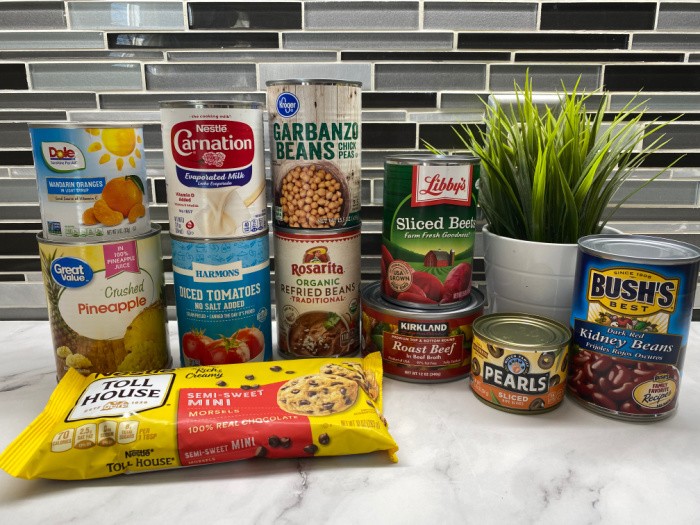
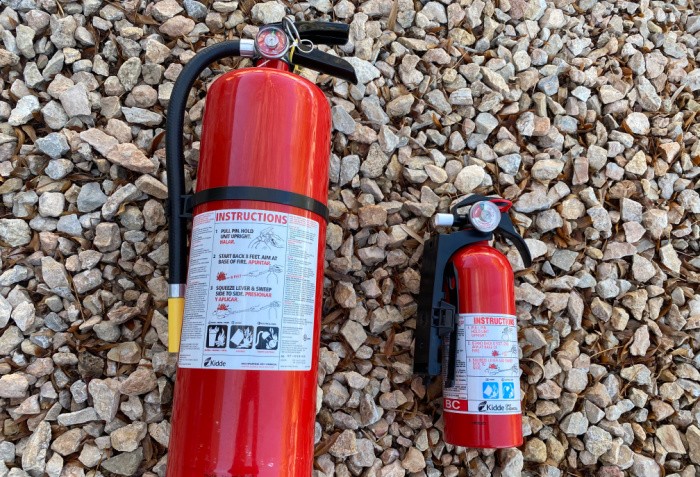



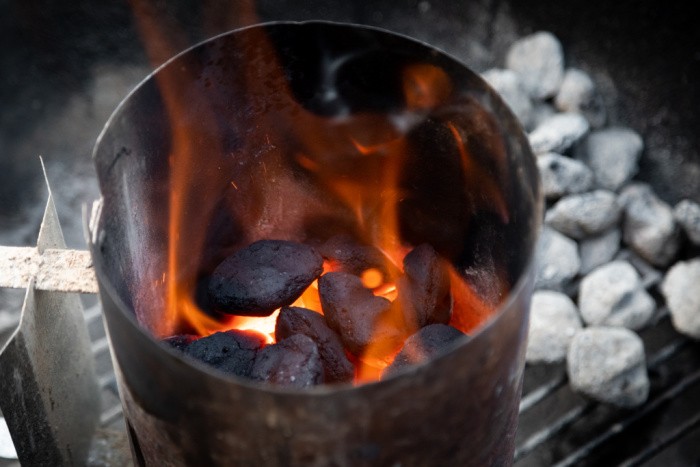

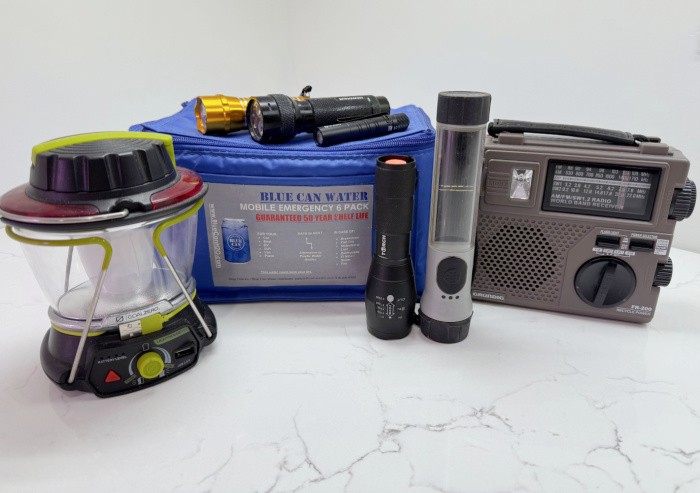
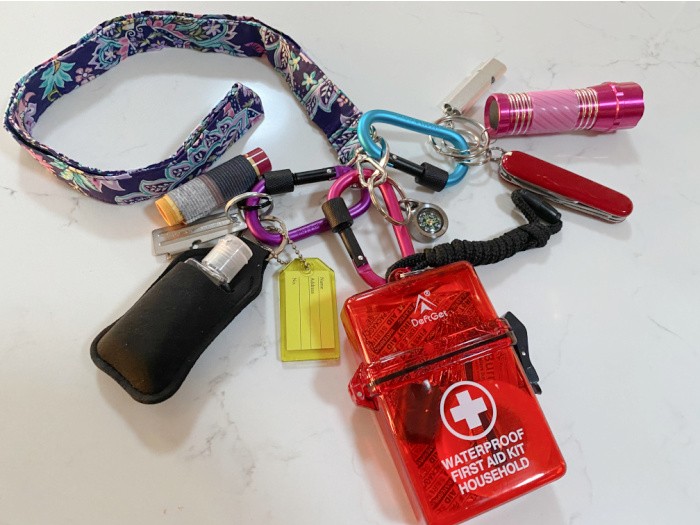










Out of all the email I get on storge I always enjoy yours the most.. on female cleanness my grandmother ( she and my grandfather lived during depression)always made homemade douch. When I was young I refused to use it..but know that I have a family of my own and single mom..it is so much cheaper also all natural and I love anything natural and homemade I’m sure there are a lot of recipes but I use my grandma.. apple cider vinegar and warm water… apple cider vinegar also is what most already keep on hand because it has so many uses
Hi Renee, thank you for your kind words, my friend. Apple cider is so good to stock for so many reasons! I love your comment! Linda
There are different types of bug ins too. Long and short. Shorts usually easy like a blackout or that pandemic lockdown some of y’all did. Long term means things are breaking down and it gets more complicated quickly.
You only own what you can defend.
You ain’t properly armed you own nothing. By proper I mean it covers that ground you own. If you got a 38 snub and 40 acres that ain’t proper.
Think in layers: Inner room, outer door, property line, neighborhood then city. Every secure building or area is like that. Prisons, courthouses and airports are good examples.
Long term think outside the box: trash service probably ain’t running no more at this point so place the trash cans in position, fill the cans with water or dirt and use them as bullet stoppers or slow down barricades. If you use dirt then plant something to eat in them.
Figure what to do so the grass and weeds don’t grow too tall around the place. I’m not gonna be mowing so my plan is the areas the critters don’t graze down is to use roundup. I keep a gallon or three around with a sprayer. That’ll keep the fire danger down. Yes you will have fires cause all the inexperienced people will be starting them to cook with or try and stay warm and they’ll lose control. Just look at any ice storm and you’ll see examples. Difference is fire departments might not be running.
The list goes on and on and it’s up to each individual to decide how far down the rabbit hole they go. My mind works that way so I’m so far down it I ain’t seen daylight in decades cause of my careers. I might not even be suitable to cohabitate anymore with normal folks. Lol
Y’all stay safe
Oh, Matt, I have the giggles, you might not be suitable to cohabitate anymore with normal folks. I think I know what you are saying, but it made me laugh. I often think about what if none of my neighbors are prepared at all. We will not have garbage pickup, fire trucks running and police will be busy doing what they need to do. We will be on our own, and I’m good with that. You know exactly what I’m saying, Matt! Great comments always, my friend, Linda
Paula, you and I must be married to brothers-from-different-mothers!! I am always accused of over thinking things. It’s how my brain works. As for Matt’s rabbit hole…. I’m trying to keep from going too far, because I just got a lecture on stress and my heart. Short term…. as in 2 to 3 weeks bugging in is something we have done for decades. Weather in Western New York in the winter is totally unpredictable. We have lost electricity for up to a week, and been snowed in for longer. Even in normal winter weather we choose to limit going out to once every 10 days or longer. As much as I enjoy our outings in the summer, burrowing in has it’s calming elements, even without an emergency.
Hi Chris, great comment! I think we all have a few learning curves when we lost water and electricity. If you can bug in for 2-3 weeks, you can do anything! It’s better to think and not think at all. My husband says I overthink some things. Oh, well, it’s in my DNA. Linda
Matt, I always enjoy reading what you have to say. You get me thinking even more – and Husband says I overthink everything to start with. We have plans in place and can protect our property. I won’t go into that, but let’s just say if we don’t know ya, you just might be in trouble.
Hi Paula, great comment! Amen. Linda
I would like everyone’s input….. on those ring door cameras???
Hi Chris, I have the “Ring” brand doorbell and 4 cameras they are all on batteries, not hard-wired. BUT, if you lose power/via the internet/wifi they will not work. I got the ones from Costco, they were cheaper, or at least when I bought them. You also need electricity to charge the batteries. So for now, they work great for me!! Linda
We have a doorbell and cameras all around the house…all from Costco. I LOVE ’em! I like being able to see when the grandson comes and goes – he can’t fib because I have proof! I’ve been wanting to know who’s been sneaking into the pantry at night so yup, up went a camera. It’s sorta in plain sight but no one has seen it yet…hahaha!
Hi Robbie, oh this is the best, sneaking in the pantry! I love it! Linda
All of us over thinkers will be the ones who are best prepared My husband was in the air force for 22 years and we lived over seas several times after seeing how those people had to shop every day just to eat I began to get prepared
Good observation. We were in Great Britain and there are small grocery stores on every block…bigger than our 7-11 type stores but nothing near Raleys or Smith’s, etc. I was amazed. All the homes are connected in rows and at least 3 stories. All those stairs would do me in. My point is that I immediately thought about the fact that it’s very difficult to keep groceries stocked with such limitations. I guess that’s just the way it is in Europe. I swear my pantry is better stocked than those markets! I love how Linda’s site keeps me up to date and reminds me about stocking up, etc.
Hi Arlene, I have to agree with you on the overthinkers! We will indeed be prepared. Linda
For those with growing children, remember to have clothes the size for the children growing.
Always enjoy Linda’s post.
Hi Chester, thank you for your kind words, my friend! Oh, yes, the little ones grow so fast. I remember buying clothes to for my girls the next year when they went on sale. I knew they would fit one of them!! I had all girls! Linda
So, Linda – needing to keep all those blankets???? Does that mean the bazillion quilts I endlessly make count?????
Hi Robbie, oh your quilts are the best!!! You do such beautiful work!! Love them, Linda
I think the charitable thing to do, is for Robbie to share with those of us lacking in the talent of quilting!! lol…….
Hi Chris, she does beautiful work! Linda
Everything is completely pointless without guns and ammo. This includes being proficient in the handling and cleaning as a family. All you’re doing is storing for the first person with a gun who desires what you have. You need to focus on tape and keeping a low profile by blocking windows and conserving light use at night. If you’re doing well and others aren’t it won’t take long for you to become a target.
Hi Political Gamerz, You are so right. Linda
I don’t see starts on this email….But if I did you’d get 5! The only addition I could add is what about boredom? Especially our techy teens. If there is no electricity no phones, gaming stations t.v. etc…. I’m sure there may be gnashing of teeth over something so lame as a jig saw puzzle. BUT at the end o the day you’ll be gad you picked up a few games, books, puzzles for next to nothing at 2hand store or garage sales.
Hi Hazel, you are so nice! The stars are only available for recipes, but thank you!! Boredom, oh my gosh we were just talking about this very thing! We don’t need electronics 24 hours a day!! LOL! Yes, puzzles, conversations, games, face-to-face conversations, and don’t forget to laugh and enjoy life!! Love this! Get games at thrift stores!! Love it! Linda
So many people teased me about my “prepping” and then the pandemic hit and they were all scrambling for toilet paper. I had the last laugh.
Hi Caitlyn, most people know by now they better stock up on more than just toilet paper, good job! Linda
Hi everyone, my house is on a lake & I was wondering if someone could recommend what type of filter I could use to make that water drinkable in an emergency situation? Thanks in advance for the info. Sharon
Hi Sharon, you have several options. This is my new favorite one because of the portability. https://www.foodstoragemoms.com/the-best-portable-water-filtration-unit/ Linda
Linda, you gave an excellent tip on keeping track of what is consumed for X amount of time, then stocking that. This should be very helpful for beginners but is a good reminder for us oldtimers too. I might add that it would be helpful to substitute canned/shelf stable foods for fresh/frozen ones. I prefer frozen veggies but if power goes out, canned ones substitute. I prefer fresh bacon but keep a lot of shelf stable bacon. Btw, I use my shelf stable bacon regularly so it gets rotated. In recent months there were some canned foods that were hard to find: tomato soup, cream of chicken, chili beans just to name a few. Yay, back on the shelves last week. I was able to replace all the canned foods I’d used up but golly, I was glad I had my stock to begin with.
Hi Wendy, I remember not being able to find tomato soup and cream of chicken soup. Bacon is so expensive right now, that I stopped buying it. I have heard prices of meat are coming down due to a lack of people buying expensive cuts. Linda